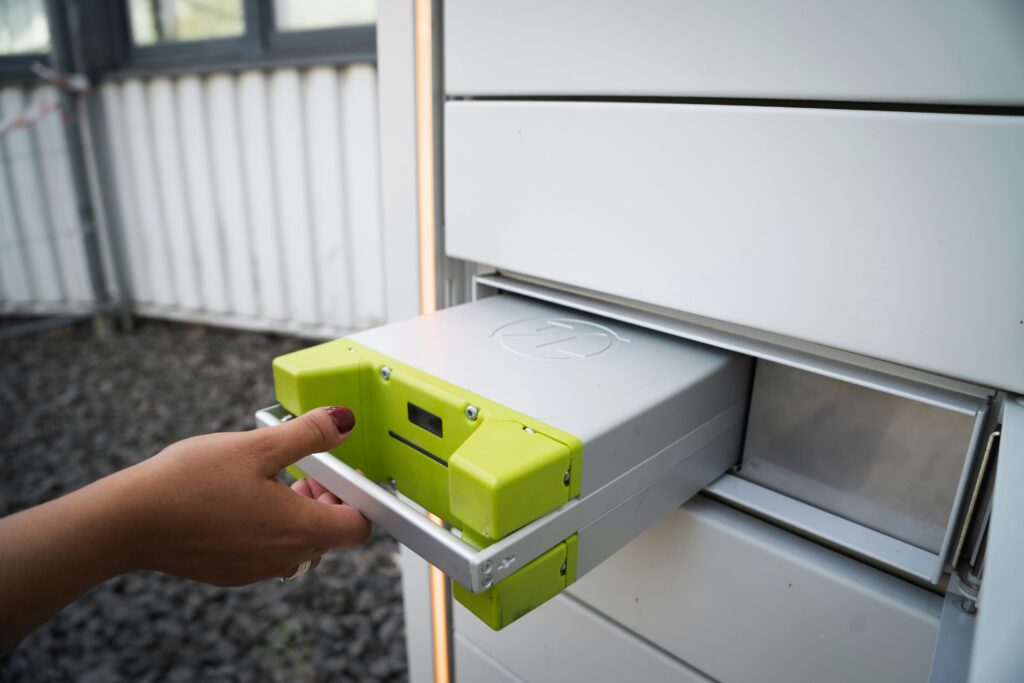This fall, researchers developing battery technologies explored the market potential of their innovations in a specialized I-Corps regional course led by the Interior Northeast I-Corps Hub. Hosted by IN I-Corps partners Binghamton University and the University of Rochester, this course was instructed by Olga Petrova, Director of Entrepreneurship & Innovation at Binghamton University, and Tom Klein, Director of offer development at XGS.
The course began with two weeks of virtual entrepreneurship training, then moved to an in-person format at the Battery Show conference in Detroit, MI. At the Battery Show, teams received additional in-person coaching before engaging in customer discovery interviews, and met daily as a group to share report outs on their progress.
Jung Yim, a postdoctoral researcher at Cornell University, said the I-Corps program helped his team evaluate their technology through a business lens rather than an academic lens.
“The core principle of I-Corps was truly beneficial in that it helped us connect with many different companies that lent differing perspectives on the definition of the same problem, only from the perspective of business needs,” Yim said. “Once we integrated their particular needs or understood their differing approaches, we either validated our assumptions or were challenged to pivot our approach to the market.”
Nine teams successfully completed the Battery Show hybrid course:
- Particulate Matters (Jingzhou Zhao – Binghamton University) is manufacturing particulate materials to improve high-temperature thermal energy storage.
- Dynami Battery Corp (Sergio Baron and Brian Reznik – Koffman Southern Tier Incubator) is making a manufacturing technology to create faster charging and longer lasting battery cells.
- Lithium Energy X (Caroline Wang – University of Virginia) is developing a more efficient and environmentally friendly method to extract lithium from geothermal brine for use in lithium-ion batteries.
- Graphenode (Jung Yim, Mohammad Aziz, Noufal Chola – Cornell University) is recycling graphite and silicon from waste materials to create an anode drop-in solution for better performing lithium-ion batteries.
- Standard Potential (Andrew Wang – Columbia University) is making sodium-ion cells as a safer, better performing, and more cost effective alternative to lithium-ion cells sourced overseas.
- CMU CVD (Renuka Hyderkhan – Carnegie Mellon University) is creating a thin film polymer coating technology that improves the performance, longevity, and safety of lithium-ion batteries.
- LESC (Hedi Yang and David Sandoval – University of Chicago) is developing a process to make silicon a viable alternative to graphite for lithium-ion battery anodes.
- Solar LiB_SU (Madan Bahadur Saud, Hangsheng Li, and Muhammad Bilal Faheem Sattar – Syracuse University) is developing an all-in-one photo rechargeable battery that allows users to power their electronics without grid power.
- Power 3D (Alex Sanchez and Chunshan Hu – Carnegie Mellon University) is 3D-printing ultra-thick lithium ion battery electrodes in a lattice structure to improve energy density, reduce charge times, and lengthen battery life.
By the end of the course, participants developed a new understanding of the battery industry and the commercial potential of their innovations. Post-conference, they reconvened online to share what they learned and how it influenced their commercialization plans. Yim explained Graphenode’s new trajectory:
“With the knowledge gained through this course, we’ve opted to expand our business scope to first attain consumer adoption,” he said. “We don’t expect to sell many [graphene silicon anodes and additives] at first, but it is important to have a product, and iterate our product so that when EV battery manufacturers are ready, we will have the most mature, commercially proven product in the market.”
Applications are open for more upcoming regional courses hosted by IN I-Corps. See dates and apply here.


